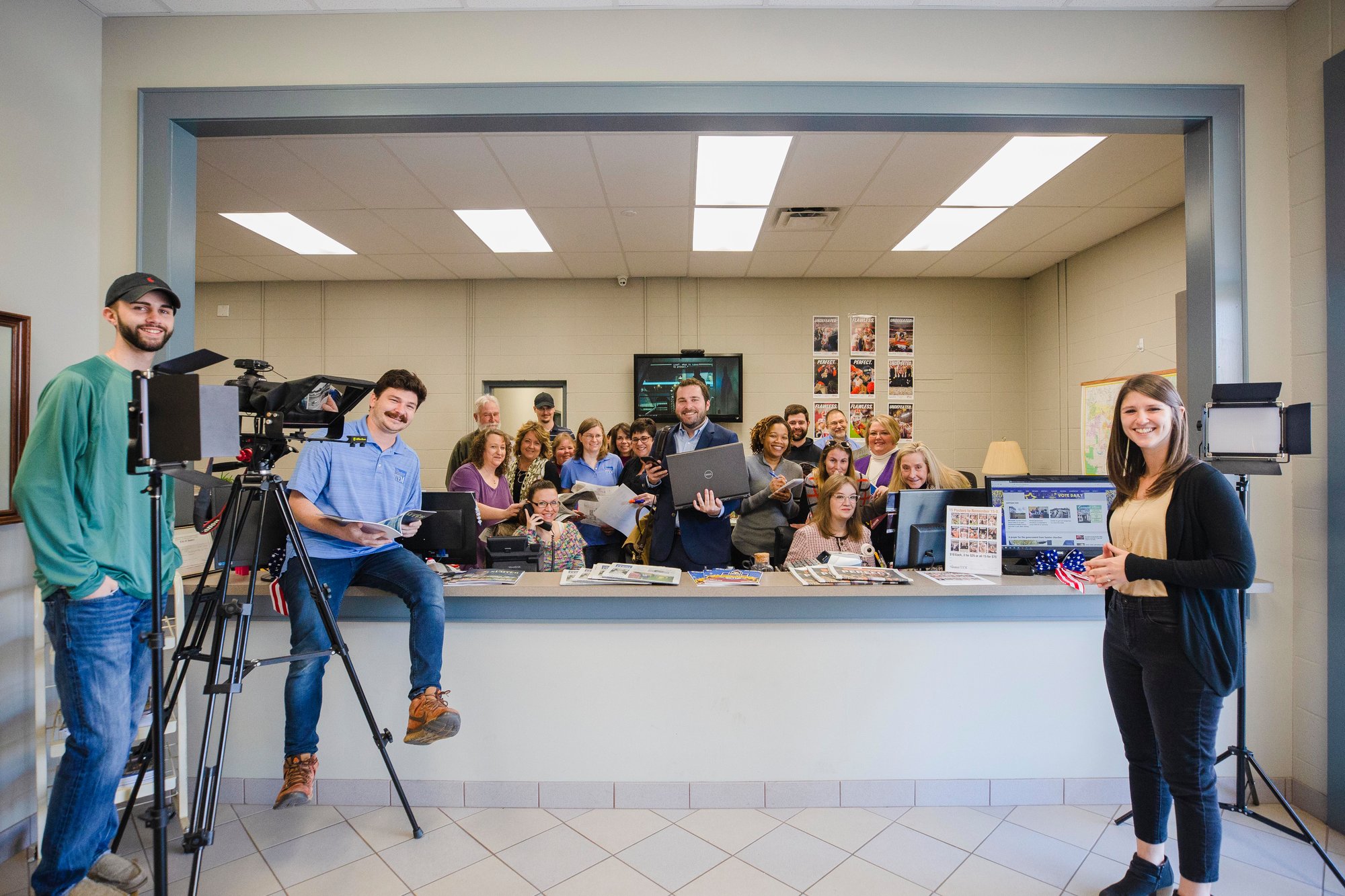Local Journalism Sustainability Act of 2021 would boost local news, including The Sumter Item, through tax credits to subscribers, advertisers and newsrooms
Read the House bill: https://bit.ly/3780XiX
Read the Senate bill: https://bit.ly/3BT23gB
Arizona Sen. Mark Kelly is among three senators who introduced the Local Journalism Sustainability Act of 2021 last week, a bill that would help local newspapers reach viability through tax credits.
The bill, co-sponsored by Kelly, D-Ariz., and Sens. Maria Cantwell, D-Wash., and Ron Wyden, D-Ore., comes five weeks after a similar bill was introduced in the House.
"I think it's really important to these towns and smaller cities," Kelly told the Green Valley News on July 22, the day the bill was introduced. "These local journalists have really been struggling lately, and the pandemic made it worse. We've got a lot of newspapers and local broadcasters who have failed because of the way the industry has changed, and I think it's important we figure out a way to help them out."
Kelly said he was drawn to the legislation because it is consumer- and market-focused.
"The community's going to have to be on board with this, too... It's more of like, we're all in this together approach," he said.
The Local Journalism Sustainability Act was introduced in the House in July 2020 by U.S. Reps. Ann Kirkpatrick, D-Ariz., and Dan Newhouse, R-Wash. It drew 78 co-sponsors but didn't make it out of the House Ways and Means Committee.
The bill was reintroduced by Kirkpatrick and Newhouse on June 16 as H.R. 3940 and currently has 28 co-sponsors - 21 Democrats and seven Republicans. There are no members of Congress from South Carolina currently signed on as co-sponsors for either bill.
The bill would help local newspapers - written now as up to 750 employees - reach viability during the next few years through three tax credits:
- Newspaper subscriptions: A five-year credit of up to $250 annually to cover 80% of subscription costs for readers the first year and 50% each of the next four years.
- Hiring journalists: A five-year credit of up to $25,000 the first year and $15,000 each of the next four years to help newspapers hire and pay the salaries of journalists.
- Advertising: A five-year credit of up to $5,000 the first year and $2,500 each of the next four years for small businesses - written now as less than 50 employees - to spend on advertising in local newspapers and media, including local television and radio stations.
The act would sunset in five years and has the support of newspapers and industry groups across the country, including the National Newspaper Association, News Media Alliance and America's Newspapers.
Kelly said he doesn't expect growing criticism of the media in recent years to be a roadblock.
"I don't think it matters if you're a Democrat or a Republican," he said. "If you live in a smaller community, small town or small city, I don't think it's a partisan thing. You like your local paper. It's a local market. I hope it will have broad bipartisanship support for it. I think it will."
Cantwell, who has long backed legislation to support local news organizations, released a report in October on transformations in the news industry and the effects on local journalism. The report found that the newspaper industry has lost about 70% of revenue and 60% of its workforce in the past two decades.
The newspaper industry itself cites alarming figures. An estimated 2,000 newspapers have closed across the country since 2004, leaving thousands of communities without a local source of news and information, even as big-city metros continue to contract and pull back on regional coverage.
Kelly said he's encouraged by the bill's chances this year.
"It always takes work, but, yes, I think we have a good shot at getting it past," he said.
Though he has no control over the passage of bills going through U.S. Congress, state Sen. Thomas McElveen, D-Sumter, said he generally supports initiatives to sustain local news organizations.
He said people have become increasingly concerned about national politics in recent years while paying less attention to "what goes on locally." Really, though, he said, the decisions made by local school boards and city and county councils have a greater and more direct impact than those made by the president.
"The loss of objective journalism can hurt rural areas," McElveen said. "It creates an easy way for local elected officials to operate in the dark."
The Sumter Item is in the process of reaching out to U.S. congressmen representing Sumter, Clarendon and Lee counties.
The Sumter Item contributed to this article.
More Articles to Read

